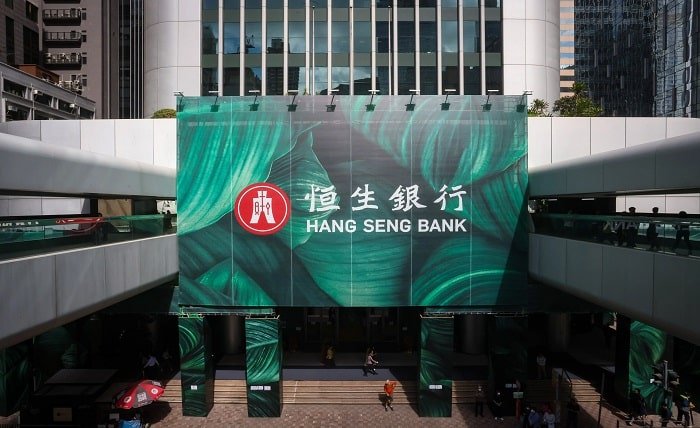Hang Seng: Navigating the Waves of Hong Kong’s Premier Stock Market

Introduction
The Hang Seng Index, often abbreviated as HSI, is a barometer for the overall health of the stock market in Hong Kong and is an emblem of the economic prowess of the region. This comprehensive guide will delve into its components, historical significance, strategies for investors, and the influence of global economics on its performance.
The Hang Seng Index
The Hang Seng Index is not just any stock market index; it represents the top 50 largest companies listed on the Hong Kong Stock Exchange. Covering various sectors, Hang Seng provides a broad yet detailed picture of the market’s health and is crucial for investors who gauge market trends.
History of the Hang Seng Index
Established in 1969, the Hang Seng has been a witness to the exponential growth of Hong Kong’s economy. Over the decades, this index has grown to include not just local conglomerates but also influential multinational corporations, making it a global benchmark.
Key Sectors Influencing the Hang Seng
The Hang Seng Index is heavily influenced by several key sectors, including finance, real estate, information technology, and consumer goods. The performance of these sectors can often predict the overall direction of the index.
Major Companies in the Hang Seng
Among the titans that sway the Hang Seng’s movements are HSBC Holdings, Tencent, and Cathay Pacific. These companies not only dominate their respective sectors but also significantly impact the index due to their large market capitalizations.
How the Hang Seng Compares to Other Global Indices
In comparison with indices like the S&P 500 or the Nikkei 225, the Hang Seng is more volatile, reflecting the rapid changes and the dynamic nature of the Asian markets. This volatility can present both opportunities and risks for investors.
Hang Seng as an Economic Indicator
Beyond its role as a financial index, Hang Seng acts as a crucial economic indicator, offering insights into the broader economic conditions in Hong Kong and greater China, influencing economic policies and investor sentiment.
Investment Strategies for Hang Seng
Investing in the Hang Seng requires understanding its cyclical nature, identifying sector trends, and timing the market effectively. Investors often use both fundamental and technical analysis to forecast market movements and make informed decisions.
Technological Impact on the Hang Seng
Technological advancements and the rise of fintech companies have begun to shift the traditional landscape of the Hang Seng, with tech companies like Tencent bringing more tech-savvy investors and innovations to the market.
Global Economic Influences on Hang Seng
The Hang Seng is profoundly influenced by global economic events, including U.S. Federal Reserve rates, the Chinese economic policy, and international trade relations, particularly with the ongoing U.S.-China trade war.
Regulatory Changes and Their Impact on Hang Seng
Regulatory changes, both in Hong Kong and worldwide, play a significant role in shaping the operations of companies listed in the Hang Seng, affecting everything from market performance to international investments.
The Role of Retail Investors in Hang Seng
Retail investors significantly influence the Hang Seng Index, especially with the rise of online trading platforms that have democratized access to the stock market, allowing more people to participate in trading activities.
Challenges Facing the Hang Seng
The Hang Seng faces several challenges, including political uncertainties within Hong Kong, economic slowdowns in China, and global financial instability, all of which can lead to significant fluctuations in the index.
Future Outlook for Hang Seng
Predicting the future of Hang Seng involves understanding ongoing trends in technology, international relations, and economic policies. The growth trajectory of Hang Seng is optimistic but laden with potential hurdles that could shape its path.
Sustainability and Corporate Governance in Hang Seng Companies
An increasing number of companies in the Hang Seng are focusing on sustainability and enhancing their corporate governance practices to attract a new generation of investors concerned with ethical and environmental issues.
Conclusion
The Hang Seng Index remains a cornerstone of Asian financial markets, offering myriad opportunities for savvy investors. By understanding its components, historical context, and factors influencing its fluctuations, investors can better navigate the complexities of this vibrant market.
FAQs
1. What is the Hang Seng Index? The Hang Seng Index is a stock market index that represents the 50 largest companies listed on the Hong Kong Stock Exchange, providing a comprehensive overview of the market’s performance.
2. How does the Hang Seng differ from other major global indices? The Hang Seng is known for its volatility, reflecting the dynamic and rapidly changing Asian markets, unlike more stable indices like the S&P 500.
3. What are the major sectors represented in the Hang Seng? Major sectors in the Hang Seng include finance, real estate, information technology, and consumer goods.
4. How can one invest in the Hang Seng? Investors can invest in the Hang Seng through index funds, ETFs, or directly purchasing shares of companies listed on the index.
5. What factors influence the performance of the Hang Seng? Factors include global economic conditions, Chinese economic policies, regulatory changes, and major corporate actions within the companies listed in the Hang Seng.



